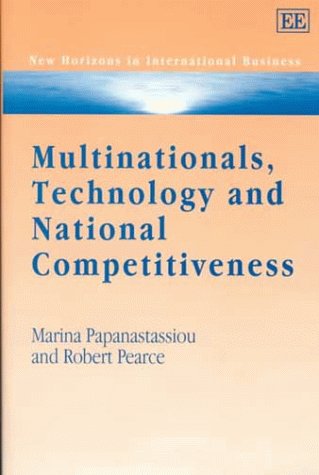New Horizons in International Business
2 total works
By providing an analytically informed basis for understanding MNEs, two parallel strands of analysis in International Business (IB) are reviewed: the `theoretical' and the `practical'. Firstly, Robert Pearce identifies how the practical restructuring of the MNE as an organisational form has responded to changes in the wider global economy and how this evolution has interacted with the enrichment of theory on the topic. Secondly, by tracing the persisting dynamics of the MNE's structure and strategic positioning, he demonstrates the use of these systems and how they can help to understand and organise the future evolution of not only MNEs but of international business as a whole.
Highly accessible with an informed overview of the entire IB subject area, The Development of International Business is an essential text for students and academics of business, management, economics and development. More generally, business leaders, economists and politicians will value the exceptional insight into the progression of international business and its future.
Multinationals, Technology and National Competitiveness
by Marina Papanastassiou and Robert Pearce
The book discusses the evolution of multinationals in the late twentieth century, the role of the UK in this evolution and the theories of multinationals. It examines what these theories imply for efficiency and welfare, and the policies which affect multinational enterprises (MNEs). The authors consider the strategic positioning of subsidiaries in the UK in relation to the firm's overall global investment strategy. Using detailed empirical surveys, they also look at the role of technology in multinationals and how these firms' strategies are developing in regard to this. The authors examine whether MNEs UK operations are dependent on existing technology or whether they play a more positive role in its local creation and use. Finally the role of decentralized R&D in multinationals, and the status of this in the UK, is considered.
Multinationals, Technology and National Competitiveness will be welcomed by those interested in international investment, business strategy, technology and innovation and public policy.

